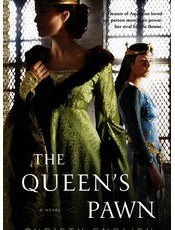mr. webster’s public life was drawing to a close. after the death of gen. taylor he accepted for a second time the post of secretary of state, but there is nothing in his official work that calls for our special attention. important questions came up and were satisfactorily disposed of. there was a strong hand at the helm.
june, 1852, brought him a great disappointment. the whig convention assembled in baltimore to nominate a candidate for the presidency. mr. webster was by all means the leader of that party, and was one of the three candidates balloted for. but in the end the successful man was gen. winfield scott. it was a nomination like that of harrison and taylor, dictated solely by what was thought to be availability. in this case a mistake was made. gen. scott was disastrously defeated by gen. franklin pierce, the nominee of the democracy.
gen. pierce, though parted by politics, was a devoted friend of mr. webster, and the reader may be interested to know that on hearing of his nomination, he spoke thus: “well, all i can say is, and i say it in sincerity, if the people of the united states were to repudiate caucuses, conventions, politicians and tricksters, and rise in the glory of their strength and might, without waiting for any convention to designate a candidate, but bent on placing in the presidential chair the first citizen and statesman, the first patriot and man, daniel webster, it would do for republican government more than any event which has taken place in the history of the world. these are my sentiments, democracy or no democracy.”
this is certainly a remarkable tribute from the nominee of one party to an unsuccessful candidate of another, but gen. pierce had shown on many occasions his warm friendship and admiration for mr. webster.
at mr. webster’s age it was not likely that he would ever again be a candidate for the presidency. his last chance had slipped away, and the disappointment was keen. he was already in declining health, induced partly by a severe accident which befell him in may, 1852, when he was thrown headlong to the earth while riding behind a span of horses to plymouth. probably the injury was greater than appeared. towards the end of september, while at marshfield, alarming symptoms were developed, and his grand physical system was evidently giving way. that month was to be his last. his earthly work was done, and he was never again to resume his work at washington. the closing scenes are thus described by mr. curtis:
“it was past midnight, when, awaking from one of the slumbers that he had at intervals, he seemed not to know whether he had not already passed from his earthly existence. he made a strong effort to ascertain what the consciousness that he could still perceive actually was, and then uttered those well-known words, ‘i still live!’ as if he had satisfied himself of the fact that he was striving to know. they were his last coherent utterance. a good deal later he said something in which the word ‘poetry’ was distinctly heard. his son immediately repeated to him one of the stanzas of gray’s ‘elegy.’ he heard it and smiled. after this respiration became more difficult, and at length it went on with perceptible intervals. all was now hushed within the chamber; and to us who stood waiting there were but three sounds in nature: the sighing of the autumn wind in the trees, the slow ticking of the clock in the hall below, and the deep breathing of our dying friend. moments that seemed hours flowed on. still the measured beat of time fell painfully distinct upon our ears; still the gentle moaning of the wind mingled with the only sound that arose within the room; for there were no sobs of women, no movements of men. so grand, and yet so calm and simple, had been his approach to the moment when he must know that he was with us no more, that he had lifted us into a composure which, but for his great example, we could not have felt. at twenty-three minutes before three o’clock his breathing ceased; the features settled into a superb repose; and dr. jeffries, who still held the pulse, after waiting a few seconds, gently laid down the arm, and amid a breathless silence, pronounced the single word, ‘dead.’ the eyes were then closed, the remains were removed from the position in which death came, and all but those who had been appointed to wait and watch slowly and mournfully walked away.”
thus died a man whom all generations will agree in pronouncing great; a man not without faults, for he was human, but one to whom his country may point with pride as a sincere patriot, a devoted son, who, in eloquence at the bar and in the senate, is worthy of a place beside the greatest orators of any nation, or any epoch. he has invested the name of an american citizen with added glory, for he was a typical american, the genuine product of our republican institutions. no poor boy who reads his life need despair of becoming eminent, for he can hardly have more obstacles to overcome than the farmers’ boy, who grew up on the sterile soil of new hampshire, and fought his way upward with unfailing courage and pluck. not once in a century is such a man born into the world—a man so amply endowed by his creator—but he did not rely upon his natural talents, but was a firm believer in hard work. with all his marvelous ability he would not otherwise have left behind him such a name and fame.
